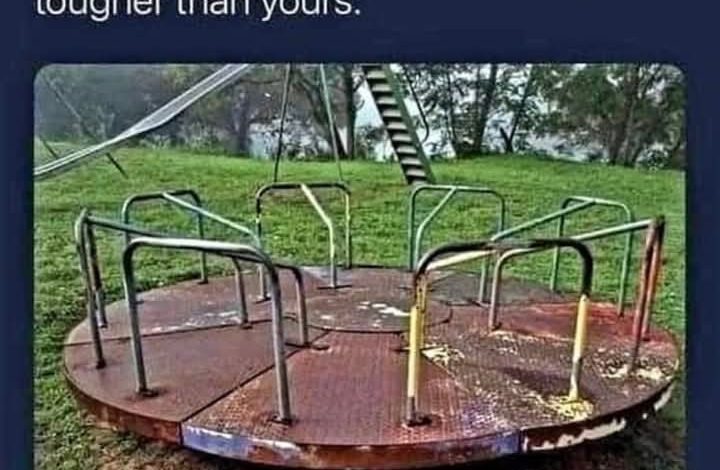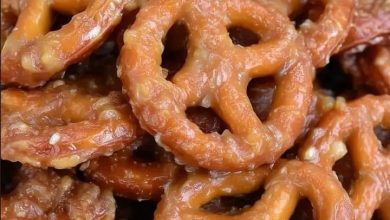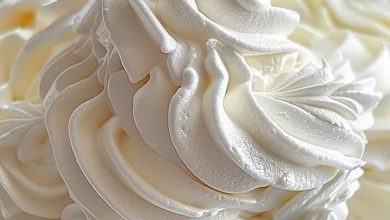“The Generation That Grew Up on Rusty Playgrounds: A Tale of Resilience”

ADVERTISEMENT
“The Generation That Grew Up on Rusty Playgrounds: A Tale of Resilience”
Introduction:
A Playground of Tough Lessons
The playgrounds of the past were a battleground for courage, endurance, and learning life’s toughest lessons. The rusty, rickety merry-go-rounds, towering metal slides, and sharp-edged seesaws might seem dangerous by today’s standards, but for a generation, they were a rite of passage. The image of a well-worn merry-go-round like this one brings back memories of scraped knees, wild laughter, and the thrill of pushing limits. It’s a symbol of a time when kids were left to navigate risks, build resilience, and learn from their tumbles.
Body: The Playground of Yesteryear
A World Without Safety Standards
The playground equipment of the past was a stark contrast to the soft-padded, carefully regulated play areas of today. Back then, it wasn’t uncommon to find structures made entirely of metal, sitting on hard-packed dirt or concrete. The merry-go-round in the image, with its chipped paint and exposed rust, is a perfect example of the raw and unpolished environment that shaped a generation.
Children would hold on for dear life as friends spun them at breakneck speeds, often resulting in spectacular falls. Yet, it was all part of the fun. There were no helmets, soft landings, or safety rails—just pure, unfiltered adventure. These playgrounds were both a challenge and a teacher, where kids learned about risk, consequence, and the importance of holding on tight.
The Lessons Learned
For many, these playgrounds were more than just a place to play; they were a testing ground for life skills. The risks taught children how to assess danger, make quick decisions, and handle failure. A fall wasn’t the end of the world—it was a moment to dust off, get up, and try again. Every scar and bruise carried a story of bravery and determination.
ADVERTISEMENT
The communal aspect of these playgrounds was another vital lesson. Kids learned how to share, negotiate turns, and resolve conflicts without adult intervention. The merry-go-round, in particular, was a group effort—some pushed, others held on, and everyone shared the exhilarating rush of spinning together.
A Contrast to Modern Playgrounds
Today’s playgrounds are meticulously designed with safety in mind. While they provide a secure environment, some argue that they lack the element of challenge that fosters resilience and creativity. The absence of risk has sparked debates about whether modern children miss out on the opportunities to develop grit and independence that previous generations gained from their rough-and-tumble playground experiences.
The nostalgia for these older playgrounds lies in their simplicity. They were places where imagination thrived, friendships were forged, and children were free to explore without constant supervision. The rusty merry-go-round, despite its imperfections, represents a time when life’s lessons were learned through trial and error, not overprotection.
Conclusion: A Generation Built on Resilience
The rusty merry-go-round is more than a relic of the past; it’s a symbol of a generation that grew up tougher, braver, and more self-reliant. It represents a time when childhood was about exploring the world hands-on, taking risks, and discovering personal limits. While safety is essential, there’s something to be said for the lessons learned on those unpredictable playgrounds.
As we look back on those days, we remember not just the challenges but also the joy and camaraderie that came with them. The generation that spun on these merry-go-rounds, climbed the tallest slides, and swung from creaky monkey bars carries with them a unique spirit of resilience—a testament to the power of play, risk, and adventure in shaping strong, capable individuals.
ADVERTISEMENT




